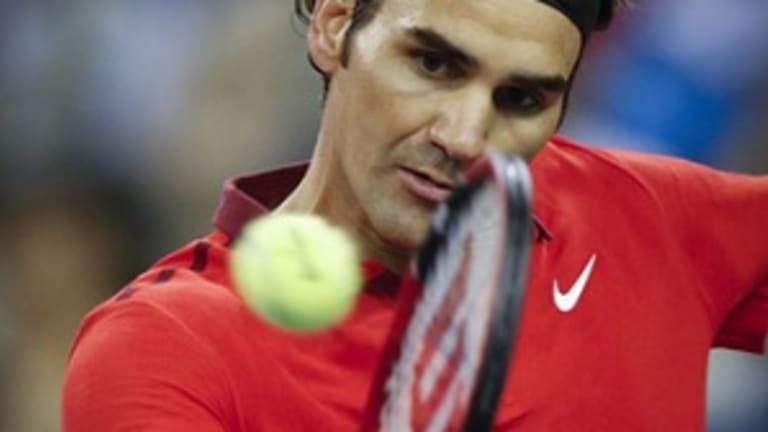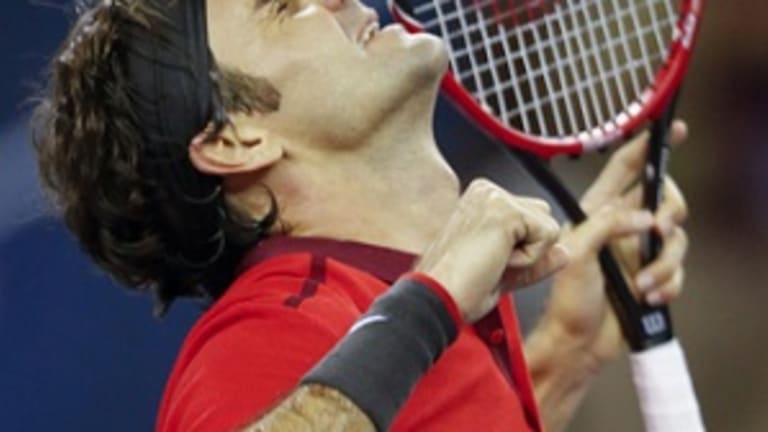To wind up 2014, I’m reposting 14 articles I liked from this past season. I’ll put up one each day until January 5, when the new season begins. Roger Federer wasn’t the player of 2014, but at 33 he made himself the game's most intriguing figure going into 2015.
“Winning titles, winning five titles or something, I guess, something exciting. Leaving tournaments as the winner. That’s what keeps things exciting.”
This was Roger Federer's answer last November when he was asked what would constitute a “satisfactory” 2014 season for him. He may have plucked “five titles or something” out of the air that day, but by any measure Federer has had a successful season. On Sunday in Shanghai, he won his fourth event and second Masters title of the year, beat Novak Djokovic in the process, and moved back up to No. 2 in the rankings. Afterward, Federer sounded duly satisfied, even ecstatic.
“I’m enjoying myself on the tennis court,” he said. “I’m playing the way I was hoping I could play again. Everything fell into place. I’m playing a very consistent, solid season.”
Everything eventually fell into place for him in Shanghai, but it took a little while. He began with a beyond-rusty—can we call it corroded?—performance against Leonardo Mayer, in which Federer joked that he was trying to set the world record for missed volleys, and which he had to survive five match points to win. Federer admitted that when he was up a set and a break on Djokovic in the semis, he thought back to the Mayer match and wondered, “Hmm, should I be here or elsewhere?” It didn’t take long for him to make his decision: “I’m here,” he said to himself, “let’s make the most of it.”
Federer made the most of the situation by winning the tournament, but he also made the most of it in the way he won it. Most people will tell you he did it at the net, and it’s true, he came in 35 times in both the semis and the final, which is a high number for any two-set match these days. But against Djokovic, Federer also lost 15 of those 35 points. His chip approaches tended to float, and Djokovic, as he was at Wimbledon, was usually ready with the backhand pass. Usually, but not always: Federer broke at 2-2 in the first set with a slice approach that Djokovic couldn’t handle, and he closed the match with a textbook backhand volley winner. Even if he didn’t win every point at the net, he disrupted Djokovic’s normal rhythm by planting himself up there so often.
But Federer’s win wasn’t about doing one thing; it was about doing everything.

